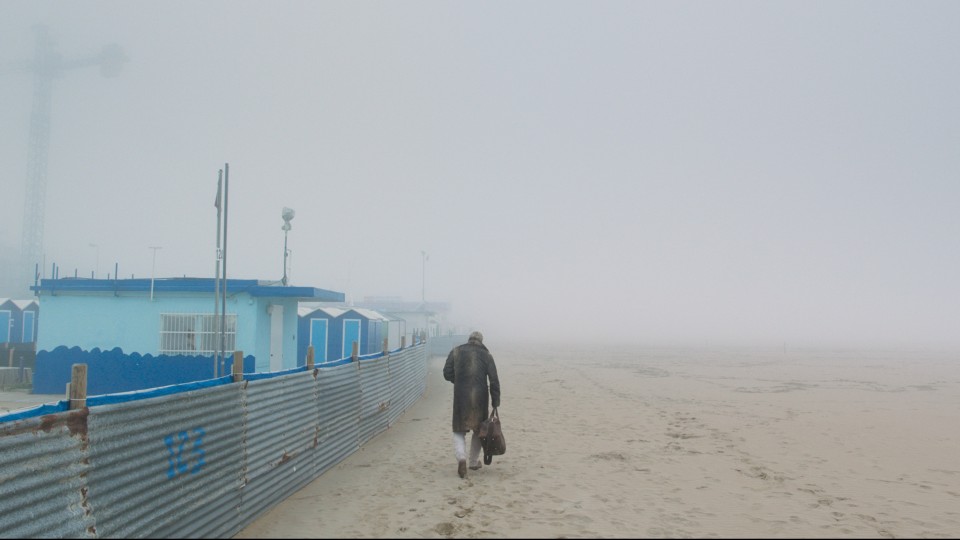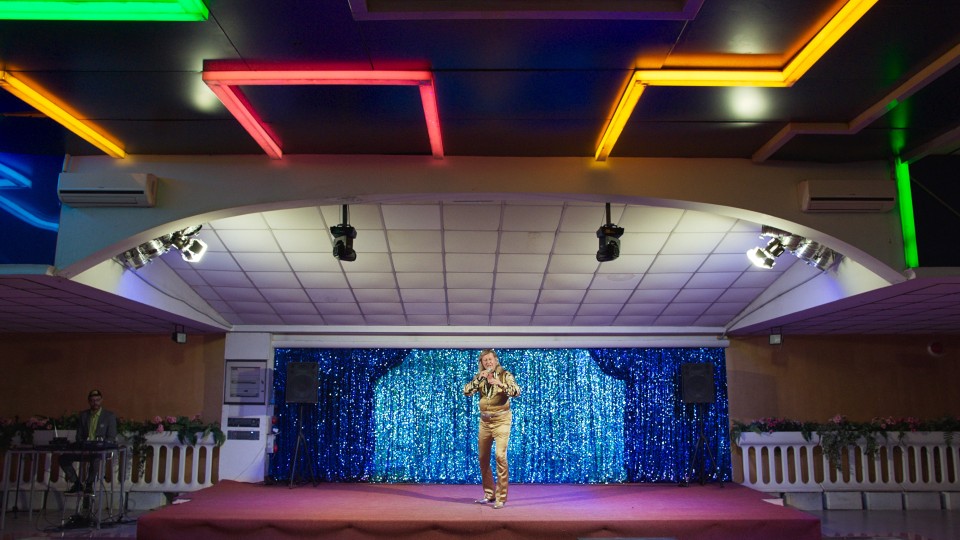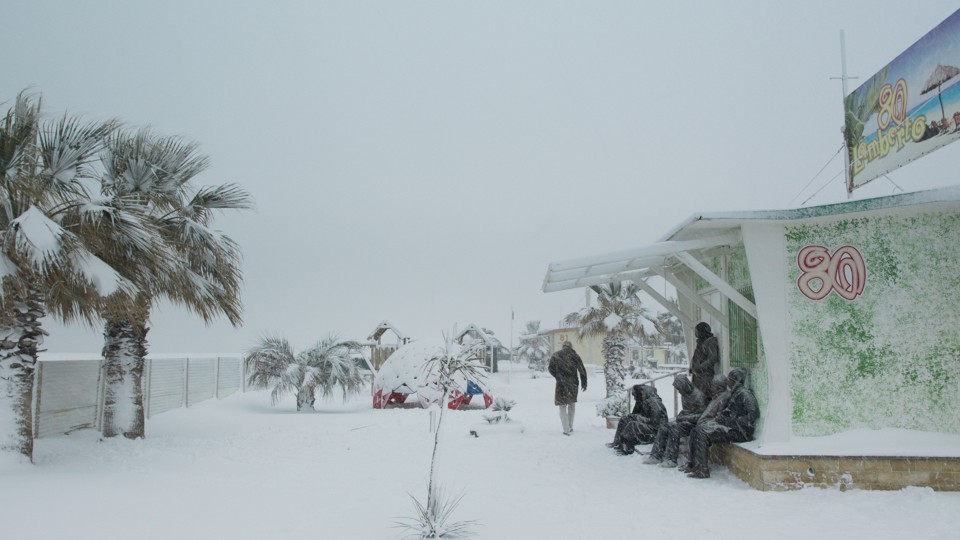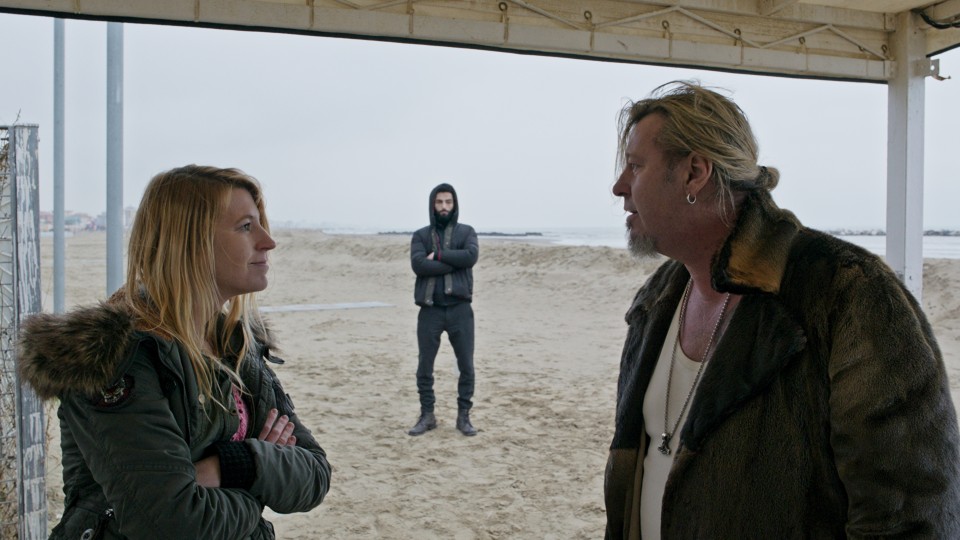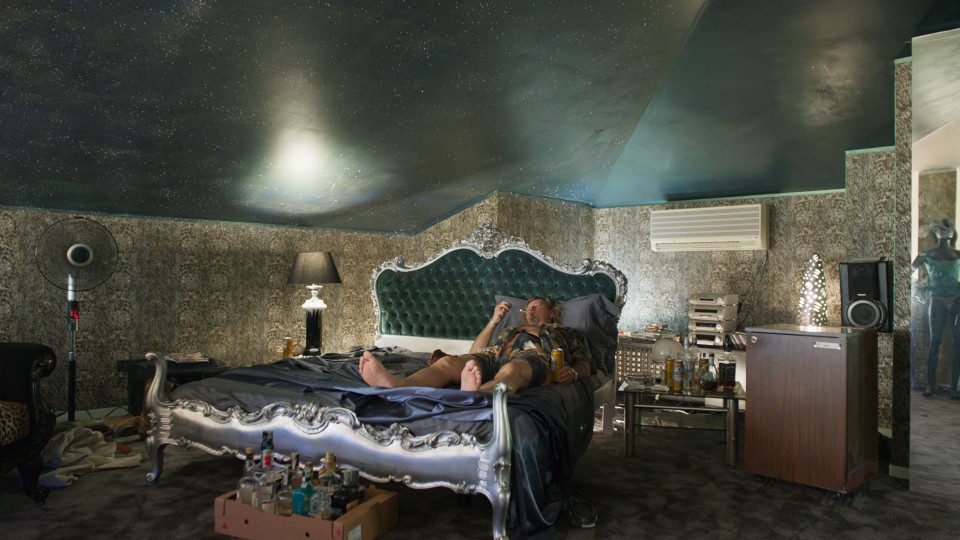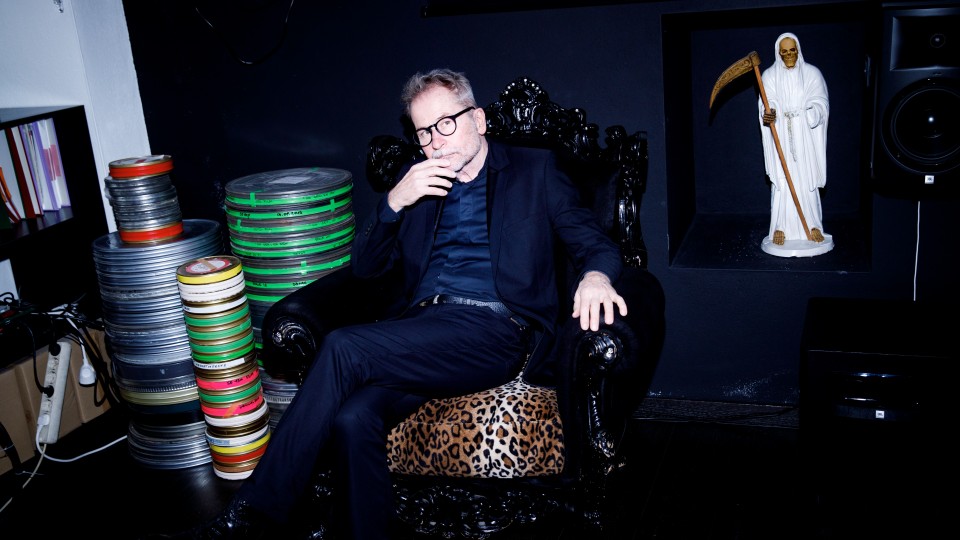Richie Bravo has certainly enjoyed more glamorous times. Today he appears in small venues in the Italian seaside resort of
Rimini during the winter, attempting to preserve something from the best days of his life as a singer of schlager, German
easy-listening, sentimental pop songs. He is a restless spirit, constantly in motion, always a few steps ahead of himself,
until suddenly the daughter he had almost forgotten appears in front of him. In RIMINI Ulrich Seidl presents a loose family group through three generations, evoking a sensation of time passing and transformations
to the beat of middle-of-the-road sentimentality.
RIMINI revolves around Richie Bravo, a pop singer who has known more glamorous times and now attempts to preserve something
from the best days of his life in appearances to small groups of his fans. How did it come about that music, songs and in
particular these easy-listening pop songs feature so prominently in your new film project?
ULRICH SEIDL: The idea for RIMINI goes back to the actor Michael Thomas. This time it wasn’t that we came up with a story and then looked
for somebody to embody it, but the other way around. This is also a good example of how a character can grow until he occupies
a central role in the film. During the course of his career Michael Thomas frequently appeared as a singer, but I didn’t know
anything about this. However, I do remember a research trip to Ukraine with him for the first project we worked on together,
Import Export, and in particular one evening in a restaurant. At some point he got to his feet and started singing My Way by Frank Sinatra. And all of a sudden the whole room was captivated by him. I’ve never forgotten that moment. But it was
only years later that I started writing the story of Richie Bravo, together with Veronika Franz, so he’s a character who has
some features in common with Michael Thomas. When Michael appeared as a singer, he would perform operetta. The fact that he
is a pop singer here is one of the aspects of the story we invented. It became clear to us that he has to be a pop singer,
because there is something very straightforward about the German schlager tradition. Michael had to do a lot of hard work
to assimilate the schlager genre. On the other hand, he plays Richie Bravo as an ageing charmer, and that’s something he himself
exudes. Our first context for this character as an entertainer was an all-inclusive holiday resort in an episode film project
on mass tourism. Once again, it was only years later that the character took on concrete features, when we were writing the
story of two brothers and their father which was initially going to be entitled Böse Spiele (Wicked Games). One part of that
story was about the younger brother, Ewald, and it was set in Romania – and suddenly the link was established to the character
of the ageing pop singer Richie Bravo. That was the basic setup, and on top of it we introduced the conflict between Richie
and his daughter, and the particular location: an off-season holiday resort.
How did you come up with the idea of using an extremely popular summer holiday resort like Rimini in the dead season? What
sort of metaphorical power does a place like that have for you when it demonstrates the opposite of its image?
ULRICH SEIDL: In RIMINI the location is a summer holiday resort, but the film takes place in winter. There really are tourist trips to abandoned
holiday resorts in winter by coach. For me it was a particularly fascinating idea, choosing a place which has an atmosphere
in winter completely unconnected with the associations you have spontaneously of Rimini or the ocean. And after all, developing
ideas isn’t exactly a straightforward process. Richie knows his career is really over; his only chance now is to put on shows
in the dead season for a small group of fans. A deserted place like that has a special power. Even if you perceive it as a
melancholy atmosphere, there is something special about it that a busy beach in sunshine would never convey. The melancholy
aspect prompts different thoughts. I’d even go so far as to claim that a grey place like that in winter is much more beautiful
than a crowded beach with thousands of parasols and the blue sea. I find a foggy atmosphere far more profound.
As well as the fog, at your location on the Adriatic there was also snow. It looks as though the weather was smiling on your
film project.
ULRICH SEIDL: The snow really was a stroke of luck. Mind you, we waited a long time for the weather to be on our side. At first it looked
much more as though there was a conspiracy against us. Filming was originally scheduled for the end of November, but there
was no sign at all of fog. After a few days I sent the film crew home, because there was no prospect of the weather conditions
we needed. The original plan was to film the second part of the story, which focuses on Richard’s brother Ewald and is now
called Sparta, that same winter. But the snow didn’t come to Rimini until the end of February, and we weren’t able to wrap
up filming the Richie Bravo story until the middle of March. Although the crew did move on to Romania and we got two days
of filming there, after that the spring came with fine weather, so we had to stop filming for this season. We’ll have to wait
until next winter to film Sparta.
At the edge of the paths and lanes which Richie always strides along at his own rapid pace there are figures sitting shrouded
in black veils. They seem like silent, anonymous witnesses to events and have something mysterious, even threatening about
them, reminiscent of the silent black African lodge staff in Safari. Is this an attempt to sketch an association to the social context, marked by migration and refugees?
ULRICH SEIDL: People seeking refuge are our social reality. They are everywhere, not confined to Rimini in particular. But it’s also well
known that especially in places that live from tourism, a great deal of effort is made, from the perspective of politics and
the driving forces in society, to limit the perception of the subject. In Rimini you don’t see the people who come as refugees
in the places where tourists stay. RIMINI is a fictional film, but of course it was important for me that this subject should
feature as part of the portrayal of reality. That’s why these people deliberately remain silent: they are present, but they
aren’t active forces.
In the end the whole building Richie had previously lived in by himself is taken over by Muslim refugees. He has his daughter
Tessa to thank for this; in her own way she is paying him back for his behaviour towards her. To what extent does Tessa’s
story reflect on an individual level the demand implicit on a social level in the presence of these people: for justice/compensation
with respect to the neglect and discrimination on the part of the Western world?
ULRICH SEIDL: In the final analysis it is Tessa, Richie’s daughter, who makes demands which set the tone and who emerges from the confrontation
with her father as the winner. However, he doesn’t defend himself. At some point he realizes that he has to surrender, and
to a certain extent that’s also what he wants. If the audience wants to see a parable here, that’s left open. I don’t want
to just say one thing in my film, and certainly not to suggest an interpretation. You can also see that Tessa’s generation
responds to refugees in a completely different way to her father’s generation, whose attitude is marked by mistrust.
At the beginning of the film two men – Richie and Ewald – come home on the occasion of their mother’s death. We witness both
of them with their father, who is suffering from dementia, and Richie with his grown-up daughter, who is expecting a child
at the end. It creates the impression that you have told a family story here to a greater extent than usual.
ULRICH SEIDL: That’s how I see it too. In earlier versions of the screenplay it was different, but the two brothers were always an important
element. Another thing that makes RIMINI a family film is the fact that this relationship, as well as the conflict between
Richie as a father and Tessa as his daughter, takes on a central role. From my perspective a further important element is
the character of the mother; although she has already died when the film begins, she is still present. At first because of
the funeral, which is what has prompted her sons to come home. Richie Bravo also tells us later that he experienced his first
orgasm with his mother, and at the end of the film we see Richie and Ewald’s father alone, in his room, desperately calling
for the mother.
From the dead grandmother to Tessa’s pregnancy, there is an existential arc extending over several generations, while the
subject of transience is also present – not least with reference to Richie’s disappearing fame. Another theme?
ULRICH SEIDL: I also perceived the idea of the past catching up with you as a unifying element: the very old father with his sons, Richie
with his daughter. I don’t make psychologizing films, and it would be a mistake to draw conclusions about the life stories
of Richie and Ewald from the fact that the father grew up in the period of National Socialism and, it’s implied, may have
been a Nazi. There could well have been other reasons why the two young men moved away from home. It’s never the intention
in my films to nail down reasons for behaviour, but it’s certainly something that’s worth thinking about. And it’s true that
as part of a family, whether you’re the child or a parent, you’re never immune from making mistakes and having an influence
on the other members of the family.
In visual terms it seems to me that Richie is characterised in two ways. On the one hand, through his costumes, with the huge
number of stage outfits and the coat made from sealskin which he virtually wears over his bare skin. The other element is
the fact that he is constantly restless, always walking from one place to another. How did his movements develop? Was the
costume work on this film more intense than usual?
ULRICH SEIDL: I would say the collaborative nature of the film was the same as always. I should point out with respect to the sealskin
coat that while we were developing the character Michael Thomas found it in a flea market, completely by chance. Sometimes
little random events open up a whole world. All his stage outfits were made by Tanja Hausner, and I think she’s fantastic.
I always place particular emphasis on costumes and locations. Actually, Rimini wasn’t stipulated as the location for the film
at first. For ages I’d had images of the Adriatic in the fog or in winter running around inside my head, but it’s more that
I was thinking taking photographs there. Suddenly something occurs to you, and then, step by step, you get to the most important
elements of the whole story. The way Richie walks was a scenic decision that had a lot to do with the location. I can’t say
how conscious I am when I make a decision like that. I see images in front of my eyes, and in this case it was Richie walking
from A to B; it just seemed right for him. I would have found it difficult to see him as a person who gets into a car to go
somewhere. Walking fits in with that place. Even if Rimini is a holiday resort with 3000 hotels, you can compress a world
like that very well.
Interview: Karin Schiefer
March 2022

